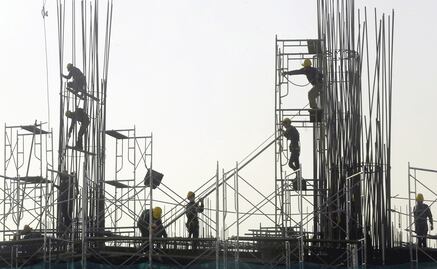Más Información

Senado alista debate sobre "pensiones doradas"; van por acuerdo para toparlas en 70 mil pesos mensuales

Fuerzas federales y estatales capturan a líder de "Los Marros" por masacre en Salamanca, Guanajuato; suman 6 detenidos por el caso
When Mexican entrepreneur Álvaro Velasco came up with the idea of a digital app that provided earthquake warnings, he was convinced he had the ideal business that could be a commercial success while helping society.
But door after door slammed as he tried to get money and legal assistance from both the government and the private sector to set up his social enterprise, SkyAlert – and he was not alone in this challenge.
On Tuesday, Mexico was listed as the worst country for social entrepreneurs out of the world’s 45 biggest economies in the second global poll of experts by the Thomson Reuters Foundation . It fell 15 places from the inaugural survey three years ago.
Argentina, Brazil, Colombia, and Venezuela
were the other Latin American countries in the poll, coming 26th, 38th, 39th, and 40th respectively in the ranking of 43 nations. Iran and Saudi Arabia were dropped due to difficulties polling there.
“In Mexico City, there’s been a brutal slowdown in the atmosphere for entrepreneurship ,” said Velasco.
“With few resources, with zero possibility of accessing public funds ... and always fighting local and federal governments that don’t want you to operate, it becomes mission impossible, and that’s what we have to fight against in Mexico.”
The poll of about 900 social enterprise experts , conducted with Deutsche Bank , found Mexico saw the biggest slump of any country when respondents were asked if social entrepreneurship was gaining momentum there. It dropped 32 places to number 40.
Mexico was one of the worst two countries when it came to public understanding the work of social entrepreneurs , leaving them struggling to sell to the public, and also in the bottom two countries when it came to support from government policy.
The findings echoed a 2017 study from the Failure Institute , a nonprofit organization that investigates why various endeavors fail, that found more than 80% of Mexican social enterprises had a life expectancy of fewer than three years .
The biggest causes of failure, the study found, were a lack of resources and infrastructure and public and private resistance to investing in social enterprises.
LACK OF UNDERSTANDING
“There’s only a small minority of people who see social entrepreneurship as a significant or important value proposition,” said Alejandro Morales García , from the Eugenio Garza Laguera Entrepreneurship Institute at Mexico’s Tecnológico de Monterrey University.
“It’s difficult for projects to flourish or be born or to continue to develop if we keep thinking in this same way.”
The country of about 130 million people fared badly in most of 12 indicators used to measure political, economic, regulatory, and cultural factors impacting social entrepreneurs. Topping the poll were Canada, Australia, and France.
Mexico also came third to last when looking at where women were playing a l eading role as social entrepreneurs , rating just above Brazil and the United States.
Marcela Torres
, founder of startup Hola Code , said Mexican sexism was a constant battle for women in social enterprise.
When she was first launching her company, which teaches young deportees in Mexico how to code, she said investors would often only address her male co-founder.
“There’s an expectation in Mexico that a woman should behave a certain way or talk a certain way,” Torres told the Thomson Reuters Foundation .
“I know a lot of women who develop strategies to seem more likable so that they’re not perceived as hard.”
Torres said she also had to struggle with a legal system that offered no real incentives for startups , and a government that offered little support for social entrepreneurs.
“(Social enterprise) doesn’t even enter the radar of the Mexican government ,” she said.
In June, the administration of leftist President Andrés Manuel López Obrador , who took office in December, scrapped the National Institute for Entrepreneurs (Inadem), a government agency that supported small businesses.
Leaders of his Morena party said dissolving the Inadem would cut out the middleman and root out corruption with support going directly to beneficiaries.
But Torres and other business leaders were concerned the government hasn’t done enough to ensure they get this support .
“The Inadem was a fairly corrupt institution, and I don’t think it was a bad decision to dissolve it but the problem is that it’s left a gap ,” she said.
A representative from Mexico’s economy ministry did not respond to a Thomson Reuters Foundation request for comment on the poll.
Mexico also ranked among the lowest for access to investment and the ability to sell to businesses, which entrepreneurs said made long-term survival all but impossible.
“It’s very difficult to become self-sustainable in Mexico,” said Velasco. “It’s hard for investors to notice you because they only look at the return on investment, more than leaving a mark on society.”
mp
Noticias según tus intereses
[Publicidad]
[Publicidad]


















